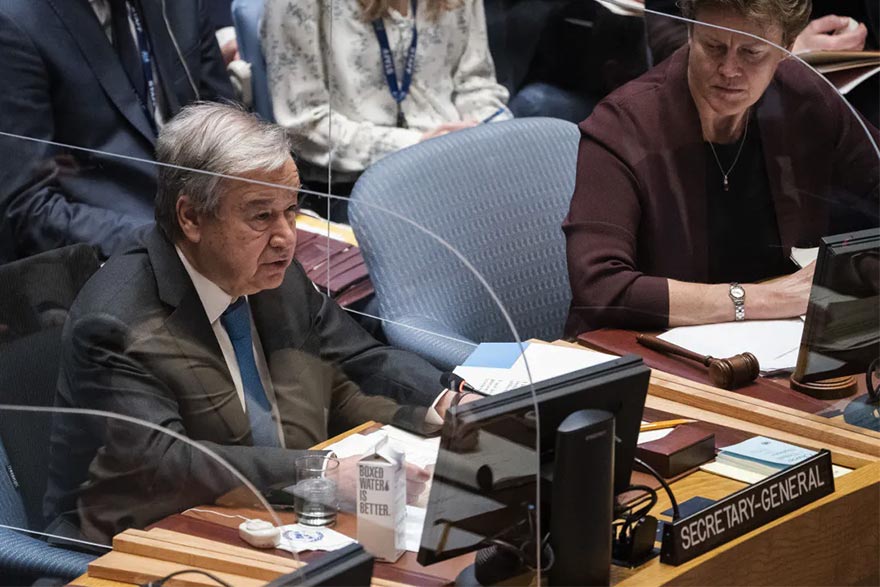UN chief Antonio Guterres has called for more investment in renewable energy and an end to the millions of dollars in subsidies for fossil fuels, as a new report shows several climate indicators broke troubling records.
UN Secretary-General Antonio Guterres released a five-point plan on Wednesday aimed at boosting investments in renewable energies. His message coincided with the publication of the World Meteorological Organization’s Climate Report for 2021.
“We must end fossil fuel pollution and accelerate the renewable energy transition before we incinerate our only home,” the UN chief said in his pre-recorded message. “Time is running out.”
WMO report shows ‘failure’ to stop climate disruption
Wednesday’s report showed that critical climate indicators all broke records last year. These include greenhouse gas concentrations and rising sea levels. The last seven years were also the hottest on record.
“Today’s State of the Climate report is a dismal litany of humanity’s failure to tackle climate disruption,” Guterres said.
Petteri Taalas, the secretary-general of the WMO, told DW that mitigating climate change is “much cheaper” than dealing with its consequences.
“It’s even up to 20 times more expensive if we let climate change happen and we are not able to mitigate it,” Taalas said.
“It’s also financially viable to pay attention to climate mitigation and start using these climate-friendly means to produce energy in the transport sector and also other sectors that we are dealing with,” he added.

What is Guterres’ five-point plan?
The UN plan focuses on increasing the spread of renewable technologies, along with greater investments, as well as ending subsidies for fossil fuels.
Guterres called for public and private investments in renewables to be tripled to at least $4 trillion a year.
The plan would also require governments to lift intellectual property protections on renewable technologies to increase access to them, as well as to open up supply chains of materials necessary for such technology which are currently controlled by just a few key players.
Guterres also pleaded with governments to end subsidies for fossil fuels that currently amount to half a trillion dollars per year, while also promoting renewable energies. He said fossil fuel companies were getting rich while consumers were paying the price.
“While people suffer from high prices at the pump, the oil and gas industry is raking in billions from a distorted market,” he said.
Taalas said energy systems needed to be made dependent on renewable and nuclear energy.
“We have to convert our transport system to be more based on electric vehicles, public transportation and perhaps hydrogen in the future,” he added.
Trajectories not on target
Even though renewable energies are expected to source most of the growing electricity demands in the coming years, the rate of growth is nowhere near fast enough to keep global temperatures below the 1.5 degrees Celsius increase over pre-industrial levels as outlined in the Paris Agreement.
Renewables currently provide just 30% of global electricity generation, with fossil fuel energies still dominating.
Guterres pointed to red tape as one of the key obstacles to the growth of renewable energies, as well as subsidies that end up promoting fossil fuels.
“In Europe, it takes eight years for a wind project to be approved,” he said. “In the United States, I understand that it can take as much as a decade at the federal level alone, where one needs to go through about 28 federal agencies.”
“Every minute of every day, coal, oil and gas receive roughly $11 million in subsidies,” he added.